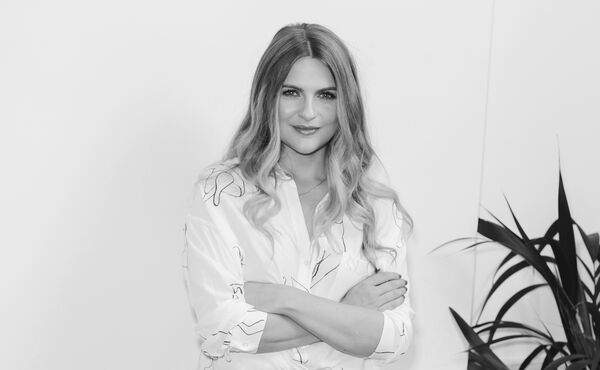From improving relationships to boosting your health, counting your blessings has plenty of benefits, but how does it work? Here’s the science behind it.
Whatever path you’re on - there’s one life goal we all most likely have in common – being happy. If someone were to ask you this second what happiness looks like, what would you say? Is it reaching your goal of buying a house? Getting that promotion at work? Finally, planning that trip to the Maldives and relaxing on the beach? Or is it a memory you already have? So often in life, we are looking to the future, thinking ‘I’ll be happy when I reach this goal’ but we neglect the opportunity to find happiness with what we already have. Countless studies have been conducted on the links between gratitude and happiness. Here are just a few of the results worth noting:
Gratitude can….
Make you happier
Two psychologists conducted a study where all participants wrote a few sentences a week focusing on specific topics. In one group, they wrote about things that had happened that week that they felt grateful for. The second group noted down daily pet peeves and things that irritated them and the third, wrote about things in general that has affected them. After ten weeks, the results were in and it was the first group that felt more optimistic and better about their lives.
Expand your brain
The University of Cape Town recently conducted a study on gratitude, 1200 under-graduate students completed a gratitude questionnaire. The study found a direct link to good academic performance and a high score on the gratitude test.
Strengthen relationships
In a study on couples, researchers found that people who took time to express their gratitude to their partner felt both more positive towards that person and more comfortable expressing concerns they had about the relationship.

Improve your health
Researchers found that those people who scored high on optimism also had a 30% lower risk of developing heart disease, according to a study on the psychological characteristics of over 8,000 people on the UK.
So how does gratitude work?
These are pretty impressive results, but how does gratitude actually affect our brains?
We have a part of our brain called the limbic system, which we use to process emotions and memory. There are parts of this system that get activated when we experience feelings of gratitude. Science has shown that practising gratitude allows our brains to release serotonin and dopamine – these are the feel-good chemicals which can have a positive impact on our mood, willpower and motivation.
Naturally, our brains have a negativity bias. This means we are more likely to focus on the negatives than the positives. Let’s say you go out for an ice cream and accidentally spill chocolate down your new white top – chances are you are going home annoyed at the mess rather than relishing the taste of the ice cream. We are never going to be able to change the past, but what we can do is change the way we think about it. In the case of gratitude – it’s not necessarily true that you can’t each an old dog new tricks. If you keep on practising gratitude, over time you can train your brain to focus on the good things rather than the bad.
So how do you practice gratitude?
First, let’s talk about what gratitude is not. If you are in an unhappy relationship or a job you really don’t enjoy – it’s not about learning to be ok with things that don’t make you happy. It’s about focussing on those things that you really do love and counting your blessings more often.
A great way to do this is by writing things down. This could be making a list before bed of all the things you feel lucky to have in your life, keeping a journal of positive moments in your day or even writing thank you letters to people you love. If you’re not much of a wordsmith or think you don’t have time, we’ve got a whole article on ways you can practice gratitude without picking up a pen or paper. You can read it here.
-
17,90 €Incl. Taxes15 ml (1.193,33 € / 1 l)View full detailsIncl. Taxes15 ml (1.193,33 € / 1 l)
-
Promotions
25,13 € 35,90 €Incl. Taxes360 gr (69,81 € / 1 kg)View full detailsIncl. Taxes360 gr (69,81 € / 1 kg) -
29,90 €Incl. Taxes500 ml (59,80 € / 1 l)View full detailsIncl. Taxes500 ml (59,80 € / 1 l)










